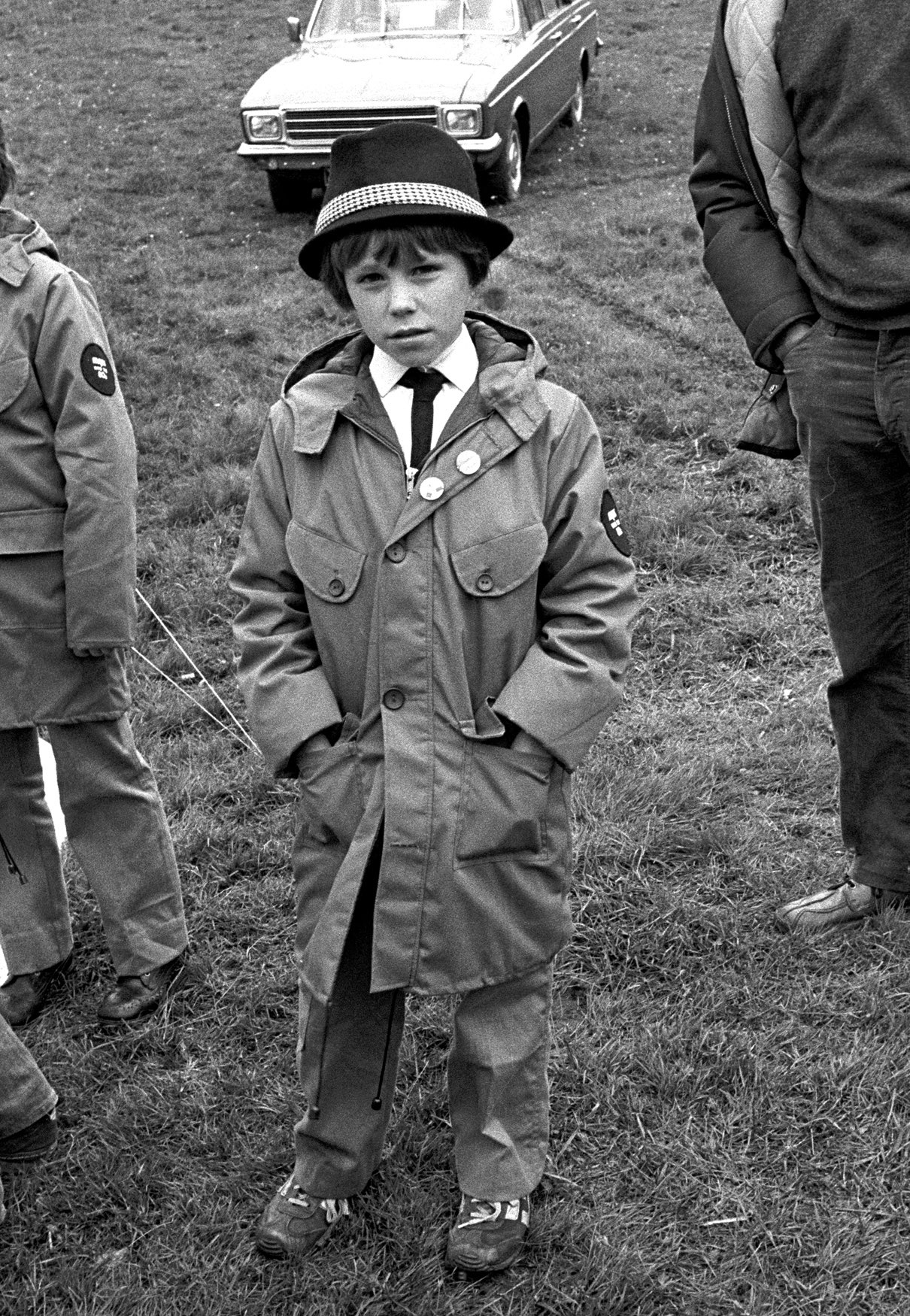Shooting the second wave of Britain’s mods and rockers
- Text by Miss Rosen
- Photography by Janette Beckman

Although her parents did not want her to be an artist, London native Janette Beckman convinced them to let her enroll on a foundation year at St. Martins School of Art in the 1970s. Once they agreed, Beckman moved to the South London neighbourhood of Streatham, where she paid £5 a week to rent a floor in a semi-squat inhabited by fellow art students.
Her love for portraiture led her to eventually take up photography at the London College of Communication. After discovering August Sander’s seminal monograph, People of the 20th Century, in the school library, Beckman began documenting the explosion of rebel culture in a series of street portraits made across the UK.
In Mods & Rockers Raw Streets UK 1979-1982 (Café Royal Books), Beckman takes us back to the second coming of these classic British subcultures – two groups who were, for a brief moment in time, each other’s natural enemies.
“Back in the ‘60s, the Mods and the Rockers used to have all these fights in Brighton,” Beckman says. “The Rockers rode bikes and the Mods rode their scooters, then they’d get together on the beach, get pissed, and battle each other. It was a huge scandal. It was an early youth rebellion.”
While America flourished after World War II, Britain lagged behind, rebuilding from the rubble of the war. Mods and Rockers initially took their cues from American fashion, music and film, until bands like The Who and The Jam came along and gave it a UK twist.

Islington Twins London 1981

Caister couple in parking lot 1980
By the late ’70s, a second wave had risen, fueled by kids old enough to rummage through their parents’ closets and don their highly prized garb. “Mod was a very sophisticated look,” Beckman says. “It was very different since it was happening in the time of punk, when people were literally cutting up garbage bags and putting them on with Doc Martens and an Army jacket.”
Beckman took her first youth culture portrait of the Islington Twins while teaching photography in East London in 1976 in East London, using a cheap Russian version of a Rolleiflex. She was wowed by their style and panache. “Mod clothes were very tailored: narrow trousers, skinny ties, and sharkskin suits,” she says. “It was a really smart look.”
Soon thereafter, Beckman discovered Rockabilly teen weekends at Caister-on Sea. “Kids would drive their best cars down there and bands would play,” Beckman says. “It would be on a dreary weekend when it was slightly raining and everyone would be eating fish and chips. Then, in the evening you’d get wasted on beer. You don’t need money to do it – you just get a leather jacket and dance.”
Beckman fondly remembers going to a Rockabilly night at an old dance club in the Strand with a bunch of friends during her art school days. She paired a black and green circle skirt with a sleeveless t-shirt that said “Elvis” in glitter and a pair of shoes with crystal plastic heels. “We would just go out there and dance with the old Rockers all night,” she remembers, fondly.

Phil from the Polecats, Caister 1980

Mod Girl London 1976

Islington Twins London 1979

Mod kid, Scotland 1981

Mods on scooter, Streatham 1976

Teddy Boy Caister 1980

Rockabilly Dance, Caister 1980
Mods & Rockers Raw Streets UK 1979-1982 is out now on Café Royal Books.
Follow Miss Rosen on Twitter.
Enjoyed this article? Like Huck on Facebook or follow us on Twitter.
You might like

Warm, tender photos of London’s amateur boxing scene
Where The Fire Went — Sana Badri’s new photobook captures the wider support networks and community spirit around the grassroots sport, as well as the significance of its competitions to the athletes who take part.
Written by: Isaac Muk

As Kneecap and Bob Vylan face outcry, who really deserves to see justice?
Street Justice — Standing in for regular newsletter columnist Emma Garland, Huck’s Hard Feelings host Rob Kazandjian reflects on splatters of strange catharsis in sport and culture, while urging that the bigger picture remains at the forefront of people’s minds.
Written by: Robert Kazandjian

Alex Kazemi’s Y2K period novel reminds us that the manosphere is nothing new
New Millennium Boyz — Replete with MTV and endless band t-shirt references, the book follows three teenage boys living in 1999 USA as they descend into a pit of darkness. We spoke to its author about masculinity, the accelerated aging of teenagers, and the rebirth of subcultures in the algorithm age.
Written by: Isaac Muk

In photos: The people of Glastonbury’s queer heart The NYC Downlow
Elation and family — Once a year, a meatpacking warehouse nightclub springs up in Glastonbury’s South East corner and becomes a site of pilgrimage for the festival’s LGBTQ+ scene. We met the people who make The NYC Downlow so special.
Written by: Isaac Muk

“Moment of escape”: Maen Hammad’s defiant West Bank skate photos
Landing — Choosing to return to Palestine after growing up in the USA, the photographer found himself drawn to Ramallah’s burgeoning skate scene. His debut monograph explores the city’s rebellious youth, who pull tricks in the face of occupation.
Written by: Miss Rosen

We are all Mia Khalifa
How humour, therapy and community help Huck's latest cover star control her narrative.
Written by: Alya Mooro

